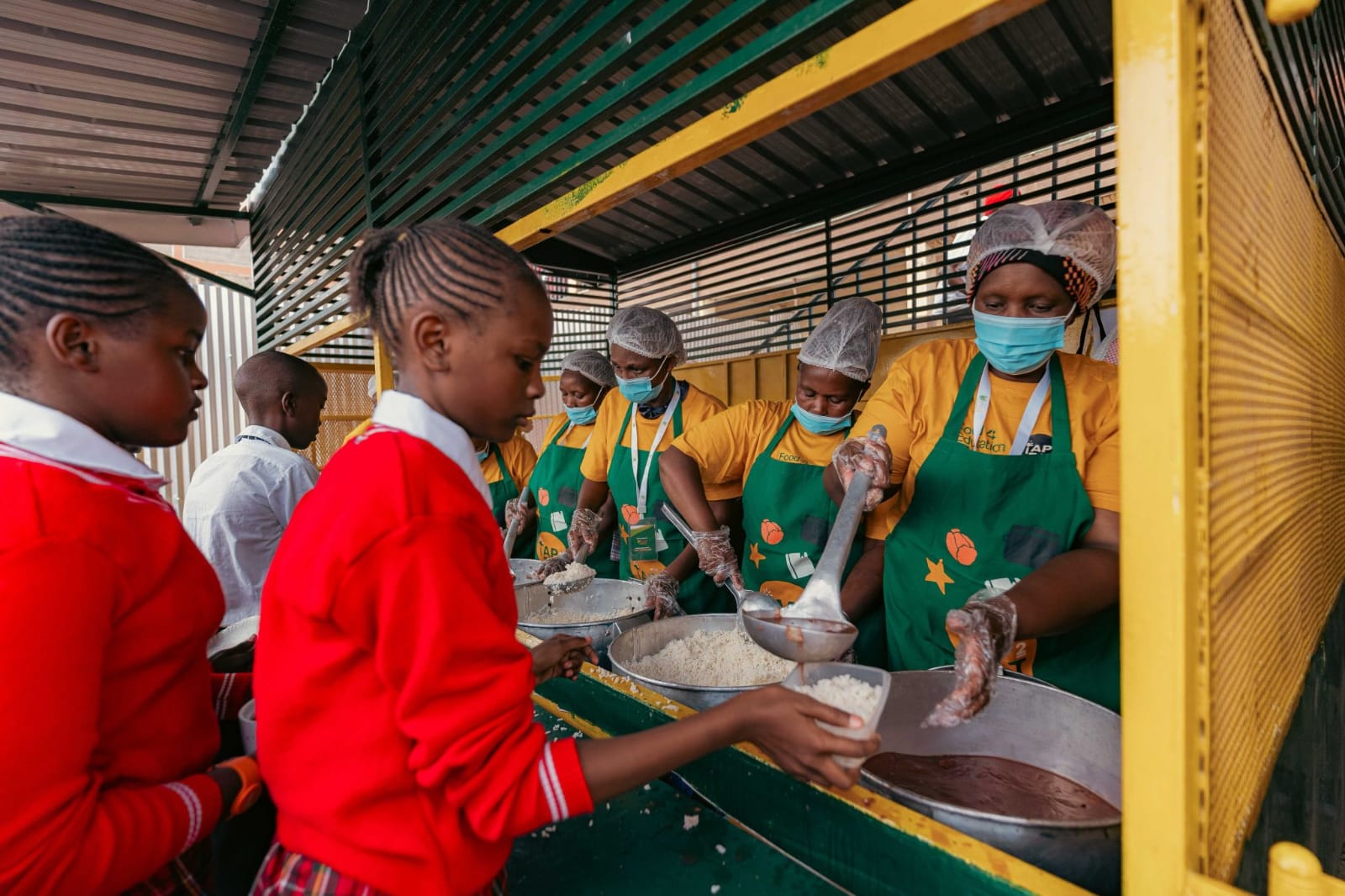

As the continent marks the Day of the African Child, Food4Education is calling
on African governments to treat school feeding not as a charity or privilege,
but as a fundamental right for every child.
The plea comes at a time when close to 60
million children across Africa are at risk of going hungry in school.
Although 90 million African children are currently enrolled in school, more
than half of them, about 50 million, attend classes on an empty stomach.
Yet, only 14 per cent of the world’s school feeding programs are found in
Africa, despite being home to the youngest population globally.
“The stakes are higher than ever,” said Wawira
Njiru, Founder and CEO of Food4Education.
“We can’t afford to separate child nutrition from socioeconomic development.
A well-fed child not only performs better in school but also helps build
stronger communities and economies.”
Founded 13 years ago in a small kitchen serving
just 25 children, Food4Education now provides over 500,000 hot, nutritious
meals every school day across Kenya.
The initiative sources more than 100 tons of food, with 80 per cent coming
from smallholder farmers. This locally rooted model supports rural economies
while keeping children in school.
In Kenya, the program has led to remarkable
outcomes. School enrollment has risen by over 20 per cent in areas like Nairobi
and Mombasa.
Partner schools report improved academic performance and reduced absenteeism
by as much as 30 per cent.
Across the continent, countries such as Ghana,
Rwanda, Ethiopia, and Nigeria are investing in or scaling up their school
feeding programs.
Still, operational hurdles continue to stall progress.
“While most African governments have allocated budgets for school meals, a
gap remains between policy intent and actual implementation,” Njiru added.
“This gap is what inspired Food4Education’s
Pan-African blueprint aimed at embedding school feeding into national systems.”
The organisation advocates for sustainable public financing, strong local
partnerships, and people-centred innovation.
Their Tap2Eat technology, a wristband linked to an NFC-powered payment
system, helps cut costs, streamline operations, and provide real-time data for
decision-making.
“School feeding is infrastructure. It’s an economic policy. It’s a climate solution. And most of all, it’s a matter of
justice,” said Shalom Ndiku, Head of Policy and Partnerships at Food4Education.
“We already know what works. What we need now is bold government action to
make sure every African child gets a meal in school.”
The model has attracted attention beyond
Kenya. During a recent visit to Food4Education’s Nairobi kitchens, King Letsie
III of Lesotho, the African Union’s Champion for Nutrition, described
sustainable school meals as a key commitment to human development, economic
resilience, and food security.
The impact is personal for many students like
Melvin, a pupil from Sironga Girls High School in Nyamira County.
She credited school meals with her academic success.
“Since primary school, I loved getting my daily meals from Food4Education,”
she said.
“Having a full belly meant I could work hard at my studies and achieve
success.”
Melvin scored 399 marks in her KCPE exams and won a scholarship through high
school.
She is now preparing to study engineering at university.

















